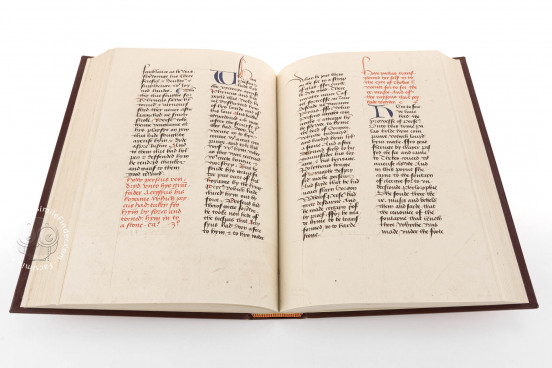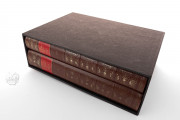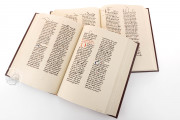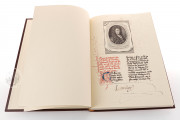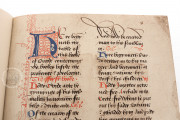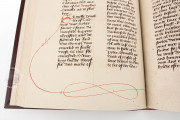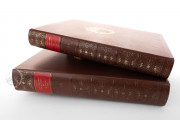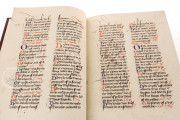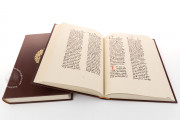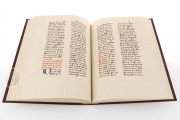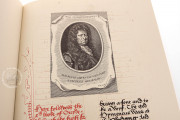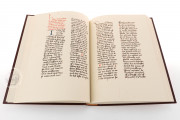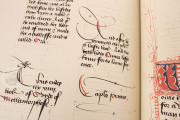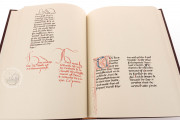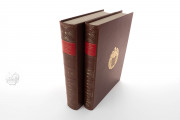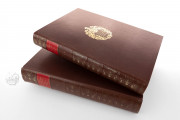The Moralized Ovid in Cambridge is a two-volume manuscript of William Caxton's translation into Middle English of a French moralized Ovid in prose. The second volume was once owned by the famous English diarist and naval administrator Samuel Pepys (1633-1703), who bequeathed his manuscript collection to Magdalene College, Cambridge, at his death. The first volume joined Pepys's volume at the college in 1970. Caxton finished his translation in 1480, and the manuscript was probably copied ca. 1483, presumably in England. Although blank space was left for a half-page miniature at the beginning of each of the fifteen books, only the first four miniatures were painted.
The various medieval Latin and vernacular moralized Ovid texts in prose and in verse are Christianized adaptations of and commentaries on the ancient Roman poet Ovid's Metamorphoses (8 CE), a poetic world chronicle, with Greco-Roman myth dominating its subjects.
An Illuminator Associated with England's First Printer
The illuminator responsible for the four miniatures is named the Caxton Master after his association with William Caxton in this manuscript. Caxton, known both for "Englishing" (translating into English) a variety of secular and Christian texts and for introducing printing from moveable type into England, may have first encountered the master when living in the Low Countries, where the painter is thought to have been trained.
Semi-Grisaille and Full-Color Paintings
Among the four extant miniatures in the manuscript, the first three (the third of which is mostly lost because much of the page was torn from the manuscript) are painted in semi-grisaille, i.e., executed in shades of gray with only isolated details colored.
In the miniature that opens Book 1, the entire scene of Ovid inspired by a blessing Christ through an open window is executed in tones of gray, except for the bright red and blue covers of the books casually strewn on the floor. The miniature for Book 4, depicting the story of Pyramus and Thisbe, is more naturalistically colored, although the palette is narrow.
Pen-Flourished Initials
Although few of the miniatures were painted, the minor decoration was, for the most part, completed. A four-line pen-flourished initial—either blue with red flourishing or red and blue "puzzle" initials with red flourishing—opens each Book, and minor initials, alternating red and blue, mark sub-sections. The script, in black with headings in red, is a looped Bâtarde.
A Dramatic Acquisition for Magdalene College
The first volume (Books 1-9) was owned by the nineteenth-century bibliomaniac Thomas Phillipps (1792-1872). After having been sold at auction in London in 1966, it was blocked for export and eventually secured for Magdalene College's Old Library. The volume owned by Pepys (Books 10-15) was formerly in the possession of Rychard Wastfield, the Audely family, and John Lumley (d. 1609).
We have 1 facsimile edition of the manuscript "Moralized Ovid": The Metamorphoses of Ovid facsimile edition, published by G. Braziller, 1968
Request Info / Price
